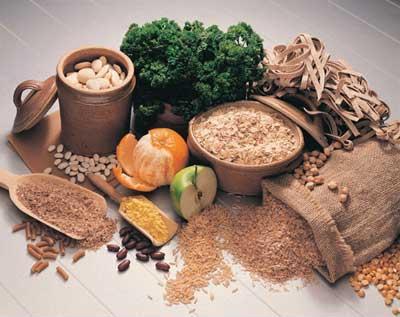Many diagnosed with ADD or ADHD and on medication oftentimes still don’t get the results they desire. But as important as it is to have the right medication, the right diet can have a powerfully positive effect on our moods and overall well-being. Lots of patients with ADD/ADHD are prone to skipping meals or binging the times they do remember. In addition, their already sensitive systems can be thrown off even further by a lack of proper nutrition.
While many know the big ones to avoid like excessive sugars or artificial flavors, it’s also important to know which ones to make sure you get more of. Because when you fuel your brain and your body properly, you're fueling your best life.
Foods to Try
Ned Hallowell, M.D., founder of the Hallowell Center for Cognitive and Emotional Health, in Sudbury, Massachusetts, and New York City, teaches all of his patients with ADHD or ADD and their families about how to properly prepare for a meal:
½ of the plate - fruits or vegetables
¼ of the plate - protein
¼ of the plate - complex carbohydrate
Fruits and Vegetables
Whether you’re preparing for yourself or a loved one, keep it simple by choosing produce that is easy to prepare and eat. It may be more expensive to buy pre-washed or pre-cut fruits and vegetables, but if you know you won’t prep it - don’t buy it.
Protein
The processes of your brain are strengthened when you have a protein-rich diet. Stick to healthy fats like fish or turkey. If you’re a vegetarian or vegan, make sure you keep protein in check with substitutes like soy or almond milk based yogurts and cheeses. You can also get these protein-rich, healthy fats from avocados and coconut oil.
Bonus: Omega-3 fatty acids are important to brain and nerve function and studies have shown that people with ADHD who take regular fish-oil supplements can see a decrease in symptoms. Supplement your protein portion with cold-water fish like sardines, tuna, and salmon, or take a supplement with dinner.
Complex Carbohydrates
Carbs have an affect on brain function and mood as they are, at their core, a sugar. Foods that help regulate your insulin, low-glycemic foods, deliver a steady supply of sugar throughout the day as opposed to big bursts and bigger crashes
Foods to Avoid
High-Sugar Foods and Snacks
ADD/ADHD or not, your body will thank you. Too many sugars leave us feeling lethargic after bursts of artificial energy.
Pro tip: Be on the lookout for other “sugars” like high-fructose corn sweetener, dehydrated cane juice; dextrin; dextrose; maltodextrin; sucrose; molasses; and malt syrup.
Artificial Dyes
While research that links ADD/ADHD to artificial dyes is inconclusive, it doesn’t hurt to eat more naturally or eliminate it and watch the results it has on your body. Avoid colorful cereals, juice drinks, or certain candies.
Need some inspiration? Check out these recipes from Additude - strategies and support for ADHD and LD.



